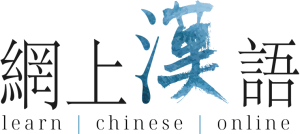Vocabulary
乘坐 chéngzuò :
to ride (in a vehicle)
甚至 shènzhì :
even / so much so that
活动 huódòng :
activity
首先 shǒuxiān :
in the first place
参观 cānguān :
to tour / to visit
饺子 jiǎozi :
dumpling
过程 guòchéng :
course of events / process
增加 zēngjiā :
to raise / to increase
互相 hùxiāng :
each other / mutually
开玩笑 kāiwánxiào :
to joke
精彩 jīngcǎi :
brilliant / splendid
京剧 jīngjù :
Beijing opera
演员 yǎnyuán :
actor
接受 jiēshòu :
to accept / to receive
专门 zhuānmén :
specialized / specially
教育 jiàoyù :
to educate / education
演出 yǎnchū :
to act (in a play) / to perform
试 shì :
to test / to try
实在 shízài :
really / actually / indeed
长城 chángchéng :
the Great Wal
骄傲 jiāo'ào :
arrogance / proud of sth
可是 kěshì :
but / however
力气 lìqi :
strength
全部 quánbù :
whole
呀 ya :
(particle equivalent to 啊 after a vowel, expressing surprise or doubt)
获得 huòdé :
to obtain
友谊 yǒuyì :
friendship
The following words are not in the HSK4 program, but they seemed to us useful to the lesson.
大使馆 dàshǐguǎn :
embassy
古老 gǔlǎo :
ancient
故宫 gùgōng :
the Forbidden City
更加 gèngjiā :
even more
之间 zhījiān :
between / among
